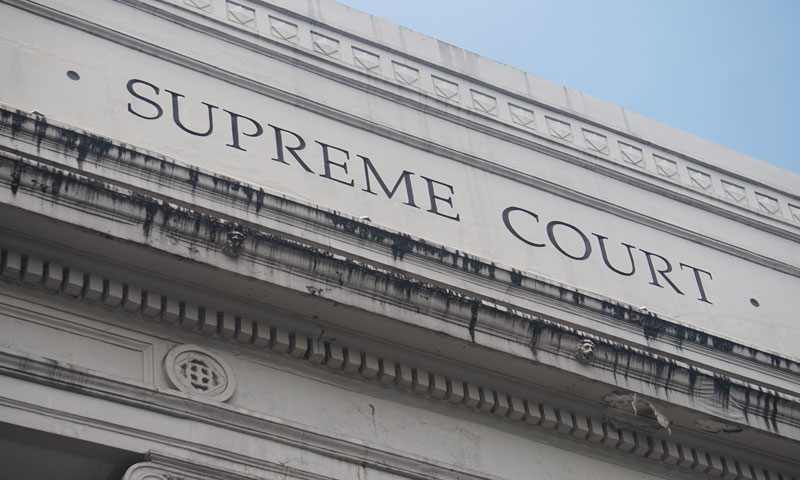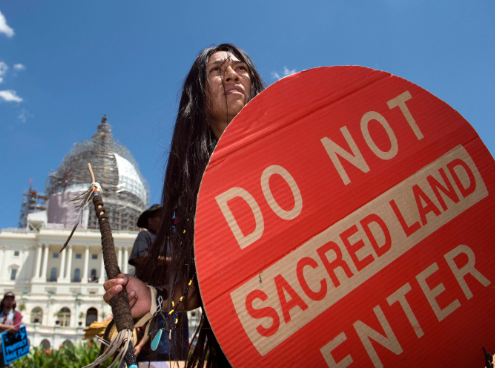Summary: In a recent analysis, the Los Angeles Times reveals just how few of the students that attend California’s unaccredited law schools actually make it in the legal world.
According to the Los Angeles Times, nine out of ten students at California’s unaccredited law schools drop out before graduation.
Consider Omar Medina. Medina was a security officer assigned to the graveyard shift when he decided to apply to Northwestern California University School of Law. Medina dreamed of becoming a lawyer, and the law school’s offering of online courses was perfect for his schedule, since he was also raising a little boy.
Tuition was roughly $3,000 per year, a minute fraction of what accredited schools across the country would charge.
However, once classes began, Medina fought to keep up. He reached out for help, but said he got little assistance. Under two later, Medina withdrew.
Medina wasn’t alone. In his first year class, there were 414 students. Four years later, only 54 students remained in the class.
State records show that in this small percentage of students that do graduate from unaccredited schools, only 20 percent actually become attorneys.
These schools have succeeded because California is one of a few states that allow students from unaccredited schools to sit for the bar exam. In this state, there are 22 unaccredited schools. These institutions offer four-year programs and must register with the state bar, but are otherwise required to maintain few additional academic standards.
In fact, most of the schools are operated by individuals, or even small companies. Peoples College of Law in Westlake is one of the few nonprofits.
The faculty is largely comprised of working attorneys, who receive little pay and are not tenured. One administrator called the pay “gas money.” A desire to teach brings these individuals to the schools.
Unaccredited schools are not held to the same standards as accredited schools. Frank Wu, the chancellor and dean of UC Hastings College of Law, which is nationally accredited, said, “Most jurisdictions simply don’t allow this kind of law school to exist at all. Period. California is very, very unusual.”
Read about UC Hasting’s fellowship program here.
In the past, there have been attempts to phase out these unaccredited schools, but these attempts have been unsuccessful. Some officials have argued that the high attrition rate demonstrates that the schools are demanding enough to week out students that are less likely to be successful.
George Leal, the bar’s director of educational standards, said that the schools “show people very quickly that studying the law, even online, is much harder than getting an associate’s degree from community college.”
Bar officials are thinking about a proposal that would require schools to meet state accreditation standards within 10 years and create accreditation standards for online schools.
Accreditation may be either national or at the state level, with national standards being more demanding. California’s top law schools, such as UCLA and Stanford, are accredited nationally by the American Bar Association. These programs are three years long.
Nationally accredited schools must have a 75% bar passage rate in three out of five years. State accredited schools in California must maintain a 40% bar passage rate over five years.
Unaccredited schools have no bar passage requirements, and are four year programs.
Patti White is an attorney from San Jose who chairs the state committee of bar examiners. That entity oversees law schools that are both accredited and unaccredited. She said that she and others are concerned about the unaccredited schools “not giving the students who pay money to attend them a realistic chance of passing the bar.”
Robert Fellmeth, the Price Professor of Public Interest Law at the University of San Diego School of Law, said, “They aren’t even diploma mills, they are failure factories. They’re selling false hope to people who are willing to put everything out there for a chance to be a lawyer.”
Others argue that an opportunity is being offered to students who cannot afford to attend traditional law school, or do not have the grades to be accepted. UCLA’s School of Law’s in-state tuition is around $45,284 each year.
The students at unaccredited schools are usually ineligible for scholarships or federal grants. Mostly, these schools cater to working individuals. Many do not have bachelor’s degrees who are working and raising their children.
Cooley Law School has suffered low bar passage rates.
Larry David, the dean of Concord Law School of Kaplan University, the largest unaccredited legal campus in California, said, “Our students are older. They have different needs than the 24-year-olds coming out of school and are willing to take on a $150,000 debt. Is everybody who comes to us going to make it? No, but our mission is to work hard to give everybody the education we believe they’re entitled to.”
Concord Law’s tuition rate is $9,984 per year. Last fall, the school enrolled 640 students. In the entering classes of 2010 and 2011, four out of five did not make it to the fourth year.
According to Concord Law’s website, it has graduated 464 attorneys since it opened in 1998.
Four online universities, such as Concord, enroll three-fourths of California’s unaccredited students.
Read about Concord’s 2012 graduation ceremony here.
There’s also a few tiny schools in the state. For example, Larry H. Layton opened the Larry H. Layton School of Law in a strip mall. He’s had six students since 2010, and charges $15,000 per year. Layton argues his enrollment is a bit higher, and that he s working to bring students to the school. In ads on social media, he’s included phrases like “Your car is safe at Larry’s law school in rural Acton, Ca.”
Medina insisted that he took law school seriously. He studied when he could, listening to lectures while driving to work, for example. He survived on around four or five hours of sleep each day.
However, his grades were still poor. He failed California’s “baby bar,” which is required for students at unaccredited law schools, two times. The exam tests first-year students’ understanding of the law.
Northwestern California opened in 1982 and has offices on the third floor of an office park in Sacramento. Every year, 600 students are enrolled from around the world. These students must complete 864 study hours every year.
Medina said that he called the school’s offices to ask for extra help from his professors. He was told to post questions online and await responses, or take additional classes for another few hundred dollars.
Medina recalled, “As far as guidance, there wasn’t much.”
Michael Clancey, the dean, said that the school does its best to give students additional help. “Every enrolled student at [Northwestern California] has access to excellent instruction, training and support,” he stated in an email.
Although nationally accredited schools must provide data on attrition, unaccredited schools are not. Northwestern California does not disclose this information to prospective students.
On the school’s website, it says that its graduates performed well on the state bar exam. In February 2007, 44% passed on the first attempt. However, the site does not clarify that only four students passed that year. The website adds, “Yet, of course, there are times when the pass rates is disappointingly low, even zero.”
Without dropout numbers, students don’t really know how many of the school’s graduates become attorneys.
Clancey commented that only a few of the students who drop out do so for academic reasons. Rather, they drop out for financial or other reasons, he explained.
Medina wishes he knew about the dropout rates before he attended the school. He said, “Something had been masked as far as their effectiveness. If I’d known that I’d have gone in a different direction…If I knew what I know now, I’d see right through that smoke screen. They got me.”
However, many attorneys are grateful for unaccredited schools. Jon Straub works in Newport Beach as an attorney, and specializes in DUI cases. He said he needed the flexibility of an online program to obtain a law degree so that he did not have to leave his job as a commercial pilot. He noted that he had the time to study, whereas other students may not have. “I had the time to invest, and it was a huge advantage,” he said.
Hyung J. Park noticed an ad for a correspondence law school in 2005 in a SkyMall magazine on a flight. After discovering the school was legitimate, Park decided to open his own school, naming it after Abraham Lincoln. His first class had twelve students, including his wife.
Park, who graduated from Loyola Law School, remembered, “I thought, if I do it the honest way, if I spend a lot of time, there’s some potential” to help individuals become lawyers.
Last year, Abraham Lincoln University had 117 students, and tuition is $8,000 per year. However, roughly 80% of students dropped out or flunked out by their fourth year.
Catherine Maxwell, a former admission officer, said that she was told to buy the list of bottom-scoring LSAT students who may have a hard time getting into other schools. “They were always aiming at the total bottom of the barrel,” she said. Maxwell worked at the school from 2011 to 2014.
Park said that the school does not purchase such lists, and that “we do not take anyone we think cannot succeed.”
Source: Los Angeles Times
Photo credit: campus.lawdragon.com













































